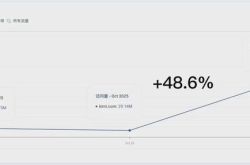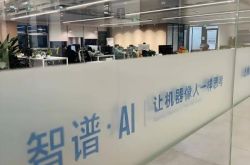AI Daily Report: "Doctorate-level Intelligence" GPT-5 Expected to Launch by the End of Next Year, ByteDance Developing 5nm AI Chip
![]() 06/25 2024
06/25 2024
![]() 616
616
Mira Murati, CTO of OpenAI, recently revealed that the company's new generation of AI model GPT-5, which is expected to achieve doctorate-level intelligence in specific tasks, is likely to be launched by the end of 2025 or early 2026.
ByteDance has been exposed to be developing an AI processor with Broadcom to ensure access to high-end chip supplies. According to insiders, this AI processor will be manufactured using 5nm technology, and the design progress is smooth, though tape-out has not yet begun.
What other hotspots in the AI industry at home and abroad are worth paying attention to over the past weekend? Let Raven Jun take you through them.
/ 01 / Large Models
1) Qualcomm Announces Open-source AI Models to Boost AI Application Development
According to Toms Hardware, Qualcomm announced that it has developed, optimized, and validated AI models for its 45 TOPS Hexagon NPU. These models are available to registered software developers on Qualcomm's AI Hub, allowing them to use pre-trained models to build their AI applications.
2) GPT-5 or to Have "Doctorate-level Intelligence," Expected to Launch by the End of Next Year
According to foreign media reports, Mira Murati, CTO of OpenAI, recently revealed that the company's new generation of AI model GPT-5, which is expected to achieve doctorate-level intelligence in specific tasks, is likely to be launched by the end of 2025 or early 2026.
Furthermore, Murati noted that AI systems like ChatGPT have reached human-level performance in specific tasks, but not in many others. She compared GPT-3's intelligence stage to a toddler and GPT-4 to a smart high school student. She revealed that OpenAI will focus on achieving doctorate-level intelligence in specific tasks.
3) Meta's AI Technology May Be Integrated into "Apple Intelligence"
According to the Wall Street Journal, Apple is reportedly negotiating with its longtime rival Meta to integrate Meta's generative AI model into its recently launched AI system, Apple Intelligence, for use in iPhone and other devices, aiming to transform Apple Intelligence into a platform similar to an app store.
Apart from Google and Meta, AI startups Anthropic and Perplexity have also been in talks with Apple to introduce their generative AI into Apple Intelligence.
4) Coding Math Defeats GPT4-Turbo, DeepSeek-Coder-v2 Tops the Arena as the Strongest Open-source Coding Model
The open-source coding model DeepSeek-Coder-v2 has climbed to 4th place in Coding Arena, close to GPT-4-Turbo. In the overall performance evaluation in the coding field, DeepSeek-Coder-v2 scores and stability are among the top 10, surpassing well-known open-source models such as Zhipu GLM-4 and Llama-3.
It is reported that DeepSeek released DeepSeek-Coder-v2 last week, which defeated GPT4-Turbo in coding and mathematics.
/ 02 / AI Applications
1) Xiaoyi Upgraded to an Intelligent Agent, HarmonyOS NEXT with Native Intelligence
At the Huawei Developer Conference (HDC 2024), Huawei announced that based on the AI base of native intelligence, Xiaoyi's capabilities powered by the Pangu large model have been upgraded to a system-level intelligent agent. After being upgraded to an intelligent agent, Xiaoyi supports memory perception in 23 TOP scenarios, supports up to 23 types of commonly used memory, and possesses stronger reasoning and planning capabilities, with a task success rate of up to 90%. In terms of knowledge question answering, Xiaoyi's intelligent agent masters knowledge of trillion-level tokens.
2) Alibaba Cloud Launches Its First AI Programmer
At the Alibaba Cloud AI Summit in Shanghai, Alibaba Cloud introduced its first "AI Programmer," which possesses skills in roles such as architects, development engineers, and test engineers. It can complete the entire process of task decomposition, code writing, testing, problem fixing, and code submission, claiming to complete application development in "minutes."
3) Kimi going out to sea? Dark side of the Moon: Currently, there are no plans to develop and release overseas products
Pengpai News reported that the dark side of the moon is responding to rumors that it is preparing to enter the US market, stating that there are currently no plans to develop or release any overseas products.
Previously, according to the foreign media The Information, citing sources familiar with the situation, employees of Moon's Dark Side have been developing products recently launched in the United States, including the artificial intelligence role-playing chat app Ohai, which is available on Apple and Google's mobile app stores, as well as the website of the music and video generator Noisee.
4) Wang Xiaochuan, CEO of Baichuan Intelligence: In addition to killing time and saving time, "adding time" is a good track for AI applications
Wang Xiaochuan emphasized that big model entrepreneurs should be very cautious when developing AI applications and avoid simply copying the App Factory model, which may result in entrepreneurs paying a huge price; He believes that healthcare is a difficult and correct path to AGI (Artificial General Intelligence), because the demand for medical services is unlimited, with high intelligence density, which can help extend life time. This is an independent track parallel to saving and killing time - adding time.
5) Magnific AI launches the Relight feature, allowing users to freely change the lighting and background of images
Spanish company Magnific AI has launched a new feature called "Relight", which has sparked heated discussions on X. Relight enables users to use artificial intelligence to alter the lighting and background of images, creating realistic and diverse effects in theme centered scenes.
6) Canalys: Chinese consumers have a strong interest in AI smartphones
According to Canalys report, Chinese Mainland is the market with the strongest AI interest tendency among the world's top three smartphone markets. Among the top three global smartphone markets in China, India, and the United States, consumers with a "high" to "extremely high" AI interest tendency account for the highest proportion, reaching 31% and 12% respectively, with only 1% of consumers showing no interest in AI.
/03/Investment and Financing Intelligence
1) OpenAI acquires Rockset, a cloud native database company, through a stock swap, with a maximum valuation of $500 million
OpenAI announced the acquisition of enterprise search and analytics startup Rockset to help OpenAI customers better utilize private data. OpenAI did not disclose the transaction amount. Rockset was founded by former Meta engineers and provides technology for retrieving, indexing, and searching data for corporate clients in industries such as gaming and fintech.
According to PrivCo data, as of August 29th last year, Rockset Company had a total financing amount of around $100 million, with a post investment valuation of $100-500 million. That is to say, the transaction value of OpenAI's acquisition of Rockset can reach up to $500 million.
2) Proposed fundraising of HKD 2.008 billion, Shangtang Riri New Big Model 5.5 will be announced on July 5th
Shangtang Technology has announced its plan to issue Class B shares, with a total fundraising of HKD 2.008 billion (currently approximately RMB 1.871 billion). According to the Science and Technology Innovation Board Daily, multiple strategic investors and top overseas funds have invested in Shangtang's placement, with existing shareholders increasing their holdings. The raised funds will be used for large-scale model research and product development.
According to the report, Shangtang will release the Nissan 5.5 model on July 5th. Previously, some media reported that the Shangtang RiRiRi New Big Model will undergo a major upgrade in the near future. In terms of long text processing capabilities, the upgraded Shangtang model will support over 1 million words of ultra long text and can analyze up to 50 file problems at once.
3) Stability AI or appointed Prem Akkaraju as the new CEO
Prem Akkaraju, the new CEO of Stability AI, will be joining to replace the interim co CEO previously held by Stability COO and CTO. According to The Information, Akkaraju served as the CEO of visual effects company Weta Digital and was also one of the investors in Stability AI. The report states that these investors have invested over 100 million US dollars in total, and the new funds may reduce the shares of some existing investors.
It is reported that founder and CEO Emad Mostaque resigned three months ago due to investor concerns about the company's financial feasibility and business operations.
4) Sun Zhengyi cleared NVIDIA shares ahead of schedule, earning $150 billion less
SoftBank Group founder Sun Zhengyi recently reviewed his investment experience, stating that he missed the opportunity for a significant increase in Nvidia's stock value and missed out on potential returns of $150 billion. Sun Zhengyi also predicted that super AI, which surpasses human intelligence by ten thousand times, will be widely used within ten years to assist humans in solving challenges such as diseases and wars.
Sun Zhengyi stated that ASI is an upgraded version of AGI, with an intelligence level 100 or even 10000 times higher than that of humans. SoftBank's mission is to achieve ASI and believes that it will promote significant progress in human society.
/04/AI Infrastructure
1) ByteDance is developing a 5-nanometer AI chip with Broadcom
ByteDance is cooperating with American chip manufacturer Broadcom to develop advanced AI processors to help bytes ensure adequate high-end chip supply. Both have always been business partners. Broadcom once said that ByteDance bought its Tomahawk 5nm chip and its Bailly switch for AI computer cluster.
According to insiders, this AI processor will be manufactured using a 5nm process and will comply with US export restrictions. TSMC will be responsible for production, and although the design work is progressing smoothly, the "chip" that marks the end of the design phase and the beginning of manufacturing has not yet begun.
2) Xiaomi's New Framework for Improving Model Efficiency: Training Up to 34% Speed, Inference Up to 52% Speed
The Xiaomi big model team proposed SUBLLM, and Daniel Povey, the father of the open-source speech recognition tool Kaldi, also participated in the guidance.
Compared with models such as Llama, SUBLLM has significantly improved training and inference speed, as well as reduced memory. In large model training, SUBLLM's speed increased by 26% and the memory per GPU decreased by 10GB. In inference, its speed increased by 37% and the memory per GPU decreased by 1GB. The training and reasoning speed can be improved up to 34% and 52% respectively.
3) Byte Doubao brand new image tokenizer: generates images with a minimum of 32 tokens and a maximum speed increase of 410 times
The ByteDance beanbag model team and the Munich University of Technology proposed a new 1D image Tokenizer: TiTok, which breaks the design limitations of 2D Tokenizer and can compress the entire image into a more compact Token sequence.
For images with a resolution of 256 x 256, TiTok only requires a minimum of 32 tokens to express, which is significantly less than the usual 256 or 1024 tokens for 2D tokenizers. At a resolution of 512, TiTok can achieve a FID of 2.74, which not only exceeds DiT (3.04), but also accelerates image generation by 410 times compared to DiT.
4) Ho Kai ming's new game, AI generation for another battle: Leading the team for the first time after joining MIT, with participation from Olympic double gold medalist Deng Mingyang
After joining MIT as an associate professor, He Kaiming led a team for the first time, proposing to draw on the diffusion model and make significant improvements to autoregressive generation. Specifically, let the autoregressive model abandon vector quantization and use continuous values to generate images. And draw inspiration from the idea of diffusion models to propose Diffusion Loss. The research participants also included IMO and IOI double Olympic gold medalist Deng Mingyang.
5) Intel's upcoming AI PC processors may be delayed in shipment
According to industry insiders, Intel's upcoming AI PC processor (codenamed Lunar Lake) may be delayed in shipment, with the original planned delivery time from June to September.







